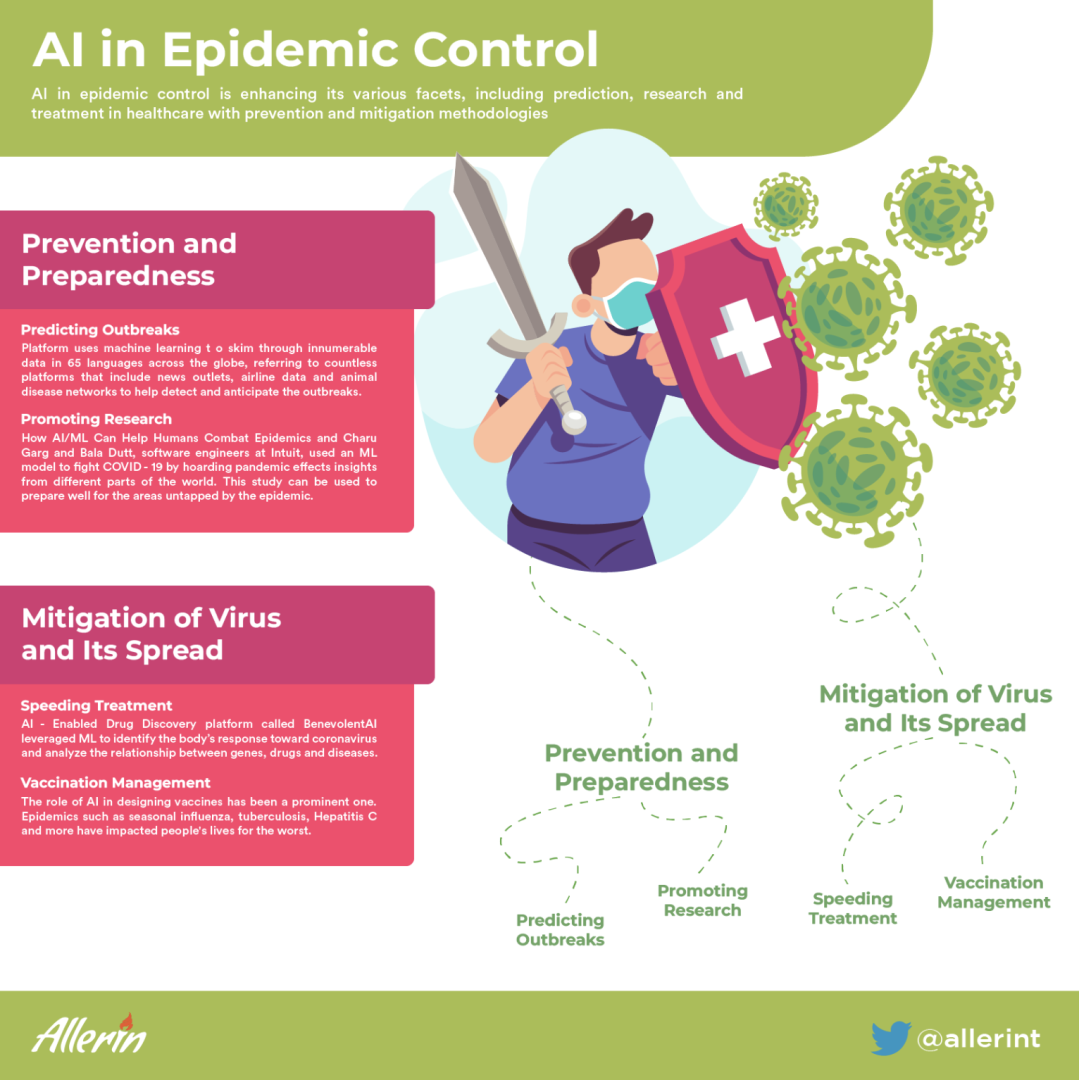Comments
- No comments found

The use of AI in epidemic control is enhancing its various facets, including predicting outbreaks and speeding treatments.

The unprecedented outbreak of the COVID-19 pandemic has escalated the augmentation of AI in epidemic control. Scientists are leveraging technologies such as AI and ML to get an in-depth understanding of epidemics, their spread, preventive measures, research and more. Get an idea about how these technologies are helping humans combat epidemics.

The horrendous spread of Covid-19 throughout the world has alerted the global community to prevent and prepare well for the same in the future. Read through the efforts that have been deemed effective in the outbreaks.
In the early stages of the pandemic, an outbreak intelligence platform called BlueDot predicted the outbreak and warned its users about the same even before World Health Organisation (WHO). This platform uses machine learning to skim through innumerable data in 65 languages across the globe, referring to countless platforms that include news outlets, airline data and animal disease networks to help detect and anticipate the outbreaks. Such ML insights can help scientists and public health management prepare and execute strategies to prevent the spread.
Charu Garg and Bala Dutt, software engineers at Intuit, used an ML model to fight COVID-19 by hoarding pandemic effects insights from different parts of the world. This study can be used to prepare well for the areas untapped by the epidemic.

Facilitating treatment during the aftermath of pandemics and epidemics becomes a priority, and AI can help boost the process significantly. Here are the pointers that explain how.
The use of artificial intelligence in Covid-19 created a massive impact in boosting the treatment through medicines and drugs. AI-Enabled Drug Discovery platform called BenevolentAI leveraged ML to identify the body’s response toward coronavirus and analyze the relationship between genes, drugs and diseases. In no time, it came up with Baricitinib drug and was sent to clinical trials, which significantly sheds light on the accelerated method that AI can provide in the drug research process.
The role of AI in designing vaccines has been a prominent one. Epidemics such as seasonal influenza, tuberculosis, Hepatitis C and more have impacted people's lives for the worst. Using artificial intelligence to help combat epidemics opens vaccine solutions that revolve around:
predicting antibody-resistant mutations
defining an appropriate drug and mode of administration
analyzing patient data from vaccine clinical trails
facilitating diagnostic confirmation through AI and ML
The applications of AI and ML in healthcare have consistently benefitted the human community in providing advanced methods to impede diseases and outbreaks. Should more epidemics strike in the future, it is more than clear that AI in epidemic control would be at the forefront of deploying preventive and outbreak-response measures.
Naveen is the Founder and CEO of Allerin, a software solutions provider that delivers innovative and agile solutions that enable to automate, inspire and impress. He is a seasoned professional with more than 20 years of experience, with extensive experience in customizing open source products for cost optimizations of large scale IT deployment. He is currently working on Internet of Things solutions with Big Data Analytics. Naveen completed his programming qualifications in various Indian institutes.
Leave your comments
Post comment as a guest